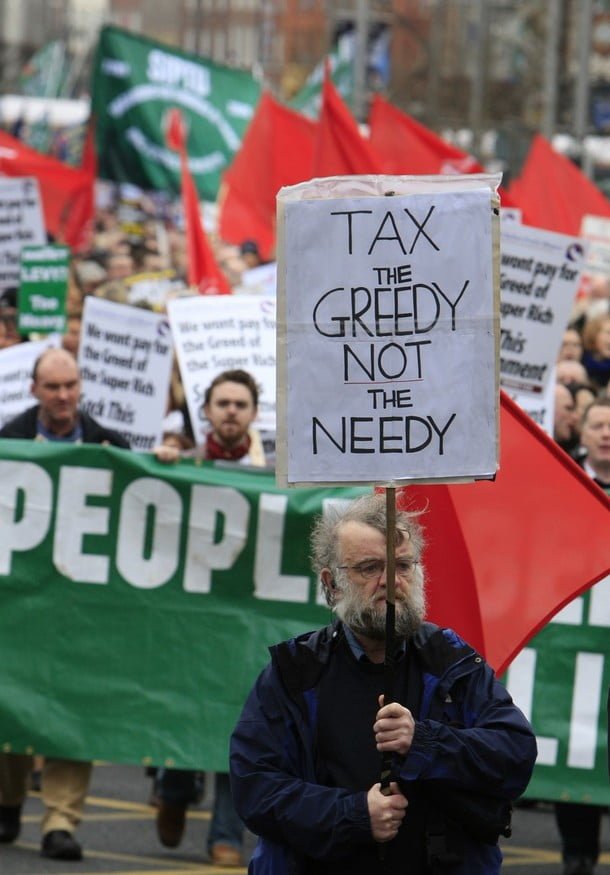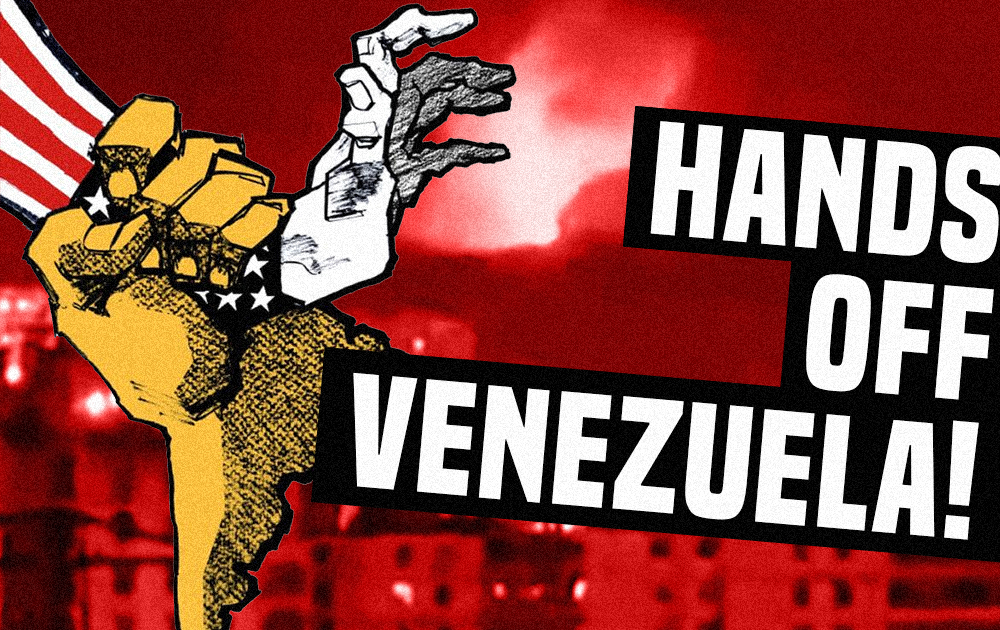IRELAND: Almost 3 months
after the mistaken decision of the trade union leaders to call off the March 30th
strike action, the discussions around a recovery plan are still floundering.
The trade union leaders will have to show some progress at the ICTU conference
next month, so they need something concrete to report on. But, given the severe
economic crisis that the state is experiencing it seems unlikely that anything
substantial will emerge. However there is the possibility that some sort of
deal will be done. But, as we explained recently, it’s likely to have more
holes in it than a Swiss cheese.
“A great many thorny issues are at play, among
them how the Government might safeguard the pension entitlements of private
sector employees in defined benefit schemes (with particular reference to the
SR Technics case) and protect from repossession people who fall into arrears
with their mortgages.A proposal that has achieved a fair amount of
traction is the Ictu/ Ibec one – that the Government introduce a major job
subsidy scheme at a cost of €1 billion. This has elicited some sympathy from
the official side”.Jim O’Leary: Irish Times 19/6/09
The point here
is that social partnership is one thing in a boom and something utterly different
is a slump. In fact with 400,000 on the live register and a 24% fall in tax
revenue the bosses and the government are going to be very reluctant to commit
to anything. The situation is going to get worse too, as the Fianna Fáil and
the Greens start to sharpen their knives to attack the public sector.
How far the
crisis is foisted directly on the public sector workers and how much it is
aimed at attacking
the unemployed, the old and the sick is open to debate. That debate takes place
under the guise of ‘public sector reform’, reform that is of the Newspeak
variety. Reform means counter reform, over the water in Britain, Blair
championed this type of reform, the continuation of Thatcherism by other means.
“It is possible
that Ireland’s severe fiscal crisis will be resolved without cutting public
sector basic rates of pay and pensions if the economic environment develops as
expected over the next few years, albeit at a cost in terms of cuts in the
social welfare budget, cuts in capital spending and/or increases in tax greater
than would otherwise be necessary – a cost that a great many
people may not regard as acceptable.“Moreover, the
economic and financial background may pan out along worse-than-expected lines: economic
activity may remain depressed and/or borrowing costs may remain higher for
longer than is commonly supposed, with obvious implications for the scale of
fiscal adjustment required.“Faced with
such risks, the last thing a government should be contemplating is handcuffing
itself on pay and pensions.” Jim O’Leary: Irish Times 19/6/09
Whichever path
that Cowen and Lenihan adopt, workers and their families will be the ones to suffer.
Meanwhile, Labour leader Eamon Gilmore has condemned union “recalcitrance” on public
sector reform at the IMPACT conference. Labour have a clear choice to make;
stand up for working class people and work to defeat Cowen’s programme, or play
second fiddle in a Fine Gael led coalition after the next general election. The
county council and Euro elections showed a shift to the left among workers,
especially in the Dublin
area. With a clear socialist programme Labour could continue to make gains.
Instead we see the shenanigans of a FF/Labour/SF coalition being formed in
Donegal county council. Irish workers deserve better than that.
While many of
the trade union leaders and the Labour leaders will continue to strive to find
some sort of common ground with the bosses in this crisis, many active trade
unionists, Labour Party members and Labour Youth members understand the reality
of the situation. They are the people who will begin to look for a political
and industrial solution to the current crisis. The trade unions and even the
Irish Labour Party will be transformed again and again over time. The genuine
ideas of Marxism will begin to play a role in that process.
The demise of
the Celtic Tiger illustrates the madness and the limits of capitalism. Only nationalisation
of the banks and the major industries under democratic workers’ control and
management can ultimately break the bosses’ power. Only a democratically drawn
up socialist plan for the economy can permanently transform the Island of Ireland
economically and socially.
-
Make
the bosses pay - No
wage or job cuts - No
coalitions with FF and FG; the bosses parties
For a
socialist programme for Labour.






